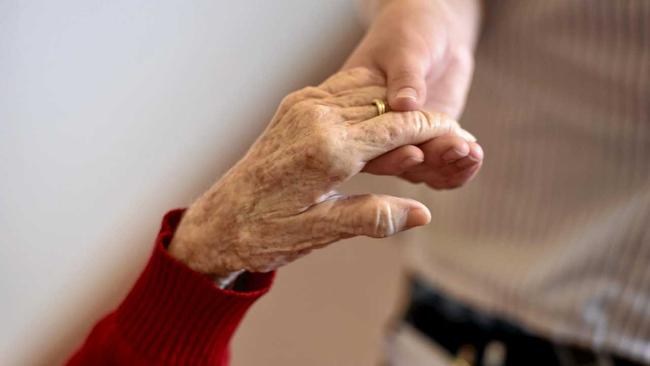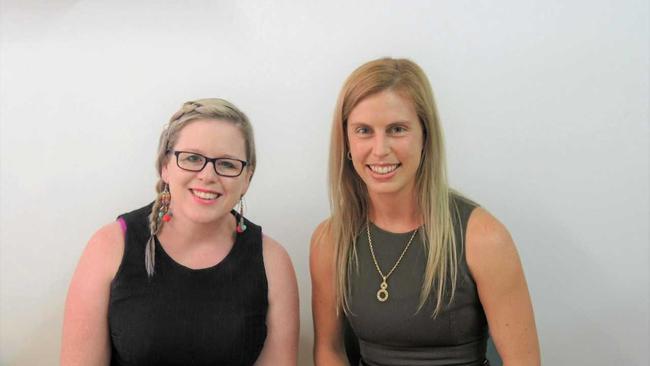When is it time to move into a nursing home?
Help is on hand to answer the question many seniors struggle with.

Opinion
Don't miss out on the headlines from Opinion. Followed categories will be added to My News.
"IS it time to leave the family home and move into a nursing home?”
"Can I get enough help to stay at home in my final years?”
Many seniors struggle with these questions, both for themselves and for their family members.
Simone Arlott is a placement consultant with Aged Care Guidance on the Sunshine Coast and Gympie.
She helps seniors navigate the rules, fees, jargon and paperwork that comes with moving into residential care. She's an independent source of information for families when they are faced with difficult decisions.
Kendall Morton is the Director of Home Care Assistance, Sunshine Coast to Wide Bay.
When a person over 65 has an ACAT (Aged Care Assessment Team) assessment, depending on their level of need they may be approved for a home care package, respite services and residential care at the same time.
Ms Arlott and Ms Morton saychoosing is not always an either/or question. A person may use their home care package for a number of years and then decide to move into residential care. As the ACAT approvals do not expire, this change is always an option.
The first option for older Australians needing support is home care packages. Many seniors are now choosing to access this support rather than leave home.
"At home you can choose your own carers, get the help you want at the times that suit you,” Kendall Morton said.
"People like the comfort and independence of being in their own homes. They have their memories here.
"Home care support is different for everyone. It's about sitting down and making a home care plan that suits that person's needs and goals so they can have a safe and fulfilling life at home. It's a tailor-made personal service.
"For instance, you can have help such as phone call reminders about medication, support with self-care and meals, exercise programs, assistance to get to social activities and the supermarket.
"It all comes down to the individual.”

Home care can change to meet someone's needs over time, so it's important to speak up when you need more support.
Your home care provider can also help you to make your home safer. For instance, they can arrange better lighting, ramps, alarm services and 24-hour phone support.
Evening care, weekend care and overnight stays are all available.
Ms Morton said that with good planning, it was possible for people to live well at home until the end of their life with home care support.
"Moving into residential care does not have to be seen as a natural progression.
"If your home care package is not enough and you really want to remain at home, there are ways to make it financially possible.”
Residential care is the second option but for some families, this can be scary.
"A lot of people have this perception about aged care facilities that it is jail and the end of everything,” Ms Arlott said.
"They worry that they will lose their independence, their social contacts.”
But she said that over the last decade, facilities had worked hard to address any shortcomings. They now had endless activities and were pleasant and homely, with gardens, social groups and frequent outings.
"On arrival each person is assessed so that their care needs can be best met.
"Residential care means they are supported and safe 24 hours a day. Some facilities have specialist dementia units to best cater for the well-being of these residents.”
Ms Arlott visits facilities regularly and researches them thoroughly. She knows what each place offers and whether it will suit you or your family member.
"If I wouldn't send my own mother or grandmother there, I wouldn't tell someone else to send their relative there,” she said.
Without this guidance, the process of moving into aged care can be daunting. Very often sons and daughters with busy jobs and young families have to find a placement for an elderly parent in a hurry.
"It's a very emotional and stressful time when you've just been told that your mum has had a fall. She's in hospital and can't go home.
"Families don't know where to start. There may be 20 facilities in their area to choose from. It's overwhelming.”
The paperwork is another hurdle, Ms Arlott said.
"There's paperwork for DVA, Department of Veteran Affairs or Centrelink along with application forms for each facility which can be up to six pages long.”
Then there's the financial aspect. Ms Arlott said this was complex and she recommended people seek out an aged care financial adviser to help them.
There could be up to four different fees, depending on the person's financial situation and choice of facility.
"There's a lot of confusion. People say 'It's too expensive, I can't afford it. They take all your money'.
"It's essential that you get the right facts for your individual situation.”
Ms Arlott offers an independent service, not affiliated with any care facilities. She meets people face-to-face, finds out their needs and budgets and explains their options.
She guides seniors and their families through every step in this major change and tackles the paperwork.
When it comes to moving into care, Ms Arlott said there was no set time. It all depended on each person's situation and needs.
"If you are using your home care package to the max and still not coping, then it's time to think about it.
"Someone may be having falls or be very isolated. Their health may be deteriorating. It's about the level of risk you are in if you stay at home.”
She recommended people use their residential respite care allowance to try out a facility.
And if they move in and find they are not happy, they can put their name on a waiting list for a different facility.
"Where you live is your choice and we help you get the best place to suit you,” Ms Arlott said.
Over the last decade, a range of residential care facilities have been built on the Sunshine Coast to supplement the older existing options.
People can now choose between spread-out single level older style facilities or newer multi-storey resort-style living.
Older facilities are regularly refurbished to stay inviting and fresh.
Both Ms Morton and Ms Arlott agreed that deciding between home care and residential care came down to people's personal situation.
It's about being well-informed and taking an active role in planning your final years.
After all, it's your life.
Kendall Morton is available on 54916888 or email kmorton@homecareassistance.com.
Simone Arlott is available on 0408 889795 or emailsimone@agedcareguidance.com.au.


